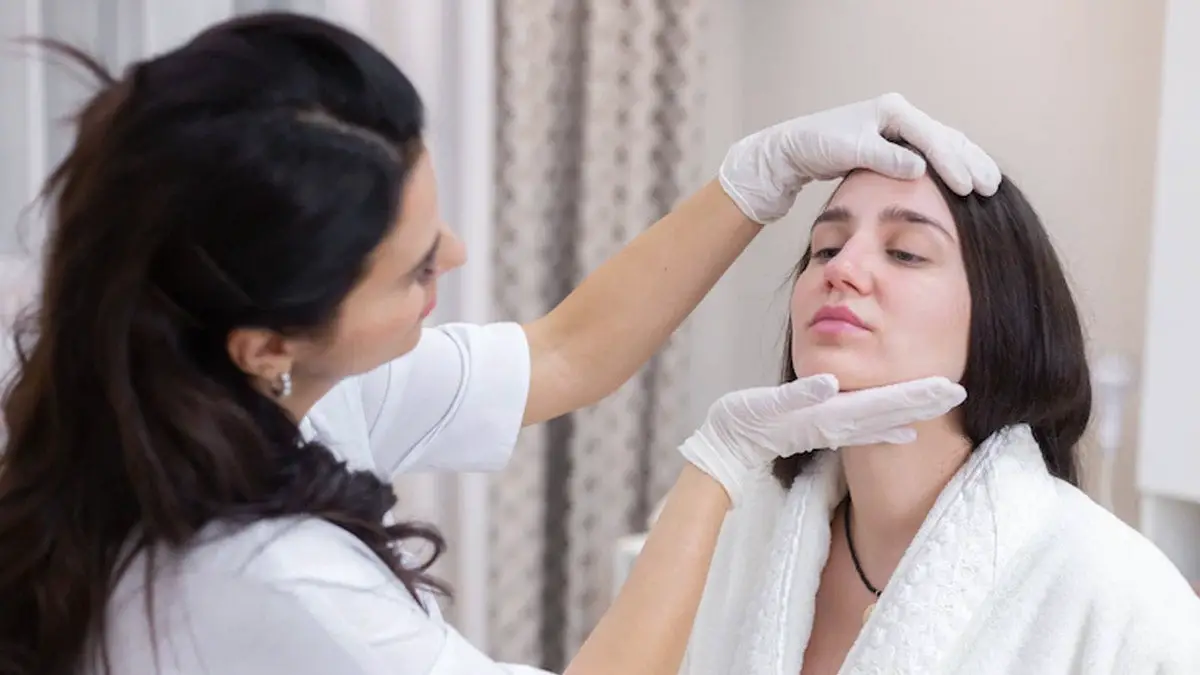What is the Difference Between Eczema and Psoriasis? An Unmissable Guide to Their Unique Traits
When discussing skin conditions, two names often pop up: eczema and psoriasis. Many people, including beauticians and skincare enthusiasts, frequently ask, 'What is the difference between eczema and psoriasis?' Understanding these skin disorders is critical for effective treatment and skincare solutions. Both conditions can significantly impact a person's quality of life, but they are distinct in their characteristics, causes, and treatments.
Eczema and psoriasis are common yet often misunderstood conditions. While both can cause discomfort, redness, and irritation, the key differences are essential to know, especially in the beauty and skincare industry. This article will delve into their unique characteristics, helping beauticians recognize and address these conditions effectively with their clients.

Understanding Eczema: Characteristics and Symptoms
Eczema, or atopic dermatitis, is a chronic skin condition often manifested as dry, itchy patches. It primarily affects children but can persist into adulthood. Here are some key features:
- Appearance: Eczema typically appears as dry, red, and itchy patches of skin, primarily located in the folds of the skin, such as elbows and knees.
- Causes: The exact cause is unknown, but it is believed to be linked to a combination of genetic and environmental factors. Allergens, stress, and weather changes can trigger flare-ups.
- Itching: Intense itching is one of the primary symptoms, leading individuals to scratch their skin, which can exacerbate the condition.
- Treatment: Moisturizers, topical steroids, and antihistamines are common treatments. Natural remedies such as sugar scrubs can also be beneficial for exfoliating and soothing irritated skin.
Understanding Psoriasis: Characteristics and Symptoms
On the other hand, psoriasis is an autoimmune condition resulting in overproduction of skin cells. This leads to thick, scaly patches that can appear anywhere on the body. Here are the essential features:
- Appearance: Psoriasis spots are usually raised, inflamed, and covered with silvery-white scales, often appearing on the scalp, elbows, and knees.
- Causes: It is influenced by genetic factors and can be triggered by stress, infections, or skin injuries.
- Types: Several types of psoriasis exist, including plaque psoriasis, guttate psoriasis, and inverse psoriasis.
- Treatment: Treatments may include topical treatments like corticosteroids and biologics that target specific parts of the immune system.
Key Differences between Eczema and Psoriasis
Now that we have insights into both conditions, it's important to summarize the key differences:
- Condition Type: Eczema is primarily inflammatory, while psoriasis is an autoimmune condition.
- Appearance: Eczema tends to be red and itchy with dry skin patches, while psoriasis is characterized by thick, scaly patches.
- Itchiness: Eczema causes intense itching; psoriasis can also be itchy but is often accompanied by discomfort and pain.
- Location: Eczema appears mostly in skin folds, while psoriasis typically appears on the scalp, elbows, or knees.
Common Misconceptions
In the beauty and skincare realm, misunderstandings about eczema and psoriasis can lead to inappropriate treatment recommendations. Here are some common misconceptions:
- Both conditions are the same - while they share symptoms, their underlying causes and treatments differ significantly.
- Only people with dry skin get these conditions - psoriasis can occur with both dry and oily skin.
- Over-the-counter products can cure these conditions - it is crucial to consult a dermatologist for a proper diagnosis and treatment plan.
Skincare Tips for Clients with Eczema and Psoriasis
As a beautician, providing appropriate skincare recommendations can greatly benefit clients suffering from eczema and psoriasis. Here are some tips:
- Moisturize Regularly: Keeping the skin hydrated can prevent flare-ups. Recommend professional-grade moisturizers that cater to sensitive skin.
- Avoid Irritants: Encourage clients to choose gentle, fragrance-free skincare products and to avoid potential irritants.
- Educate: Help clients understand their condition and what triggers their flare-ups.
Conclusion: What You Need to Know
Understanding the differences between eczema and psoriasis is invaluable for those working in the beauty industry. Being knowledgeable empowers beauticians to provide better care and tailored recommendations for their clients. By focusing on moisturization, avoiding irritants, and staying informed about each condition, beauticians can make a significant difference in the lives of individuals struggling with these chronic skin issues.
For further reading, consider checking out this resource to gain deeper insight into skin disorders.

FAQs
1. Can eczema and psoriasis occur together?
Yes, some individuals can have both conditions. This is known as 'atopic dermatitis' when it occurs alongside psoriasis.
2. Are there natural remedies for treating eczema?
Yes, natural remedies such as coconut oil and oatmeal baths can provide relief. It's essential to check with a dermatologist prior to trying new treatments.
3. How can I manage flare-ups of psoriasis?
Managing stress, following a prescribed treatment plan, and avoiding known triggers can help minimize flare-ups.

